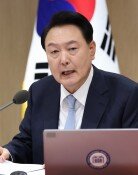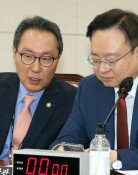No need to hurry in regaining OPCON
No need to hurry in regaining OPCON
Posted January. 30, 2021 07:14,
Updated January. 30, 2021 07:14
The Pentagon said on Thursday that the transfer of wartime operational control (OPCON) to South Korea will take place when the mutually-agreed upon conditions are fully met and a commitment to a specific timeframe would put forces and people at risk. The remarks, which put emphasis on the “conditions” for the OPCON transfer, came a day after South Korean Defense Minister Suh Wook vowed to make progress on the OPCON transfer during his term. It is unusual for Washington to refute the remarks made by a minister of an allied company.
The Joe Biden administration’s first response to the OPCON transfer issue suggests that Washington’s stance on the issue has not changed at all. Seoul and Washington agreed to three for the OPCON transfer: acquisition of key military capabilities by the South Korean military, development of capabilities to response to North Korea’s nuclear and missile threats, and security circumstances on the Korean Peninsula. The U.S. has made it clear that it will thoroughly examine whether South Korea has acquired such capabilities before making the transfer. In his New Year’s press conference on Jan. 18, President Moon Jae-in said South Korea can discuss with North Korea regarding the planned ROK-U.S. joint military exercise in March, which is focused on assessing South Korea’s capabilities to regain OPCON. Defense Minister Suh vowed to make progress on the OPCON transfer, expressing his desire to come to an agreement with the U.S. on the detailed timing of the OPCON transfer during his term.
The Biden administration has vowed to increase pressure on North Korea, calling on China and Russia to take part in implementing sanctions against the North. Setting Seoul’s readiness to defend against the North as a condition for the OPCON transfer reflects Washington’s firm determination not to make military concessions to North Korea. Furthermore, ROK-U.S. joint military exercises have been scaled down amid the COVID-19 pandemic when Seoul’s operational capabilities required for the OPCON transition need to be verified at the joint military drills. Despite such circumstances, Seoul is pushing for the early transfer of OPCON.
Above all, it is worrisome that North Korea vowed to boost its nuclear capability. During the Trump presidency, tensions on the Korean Peninsula were managed by the so-called “double suspension” strategy, where North Korea suspends nuclear and long-range missile tests and South Korea suspends its joint military drills with the U.S. Under the Biden administration, seeing a friction between the defense authorities of the two countries sparks concern about whether the two countries have no problems in their partnership in managing North Korea. Keeping campaign pledges is important but hurrying into regaining OPCON could destabilize the security on the Korean Peninsula.
Headline News
- Israel prepares for retaliation against Iran
- Samsung reclaims top spot, surpassing Apple in smartphone market
- 77% of Koreans in 20s and 30s are 'Kangaroo Tribe' due to job crisis
- KBO referees embroiled in controversy over ABS decision concealment
- Inflation, oil price surge put double shock on global economy







